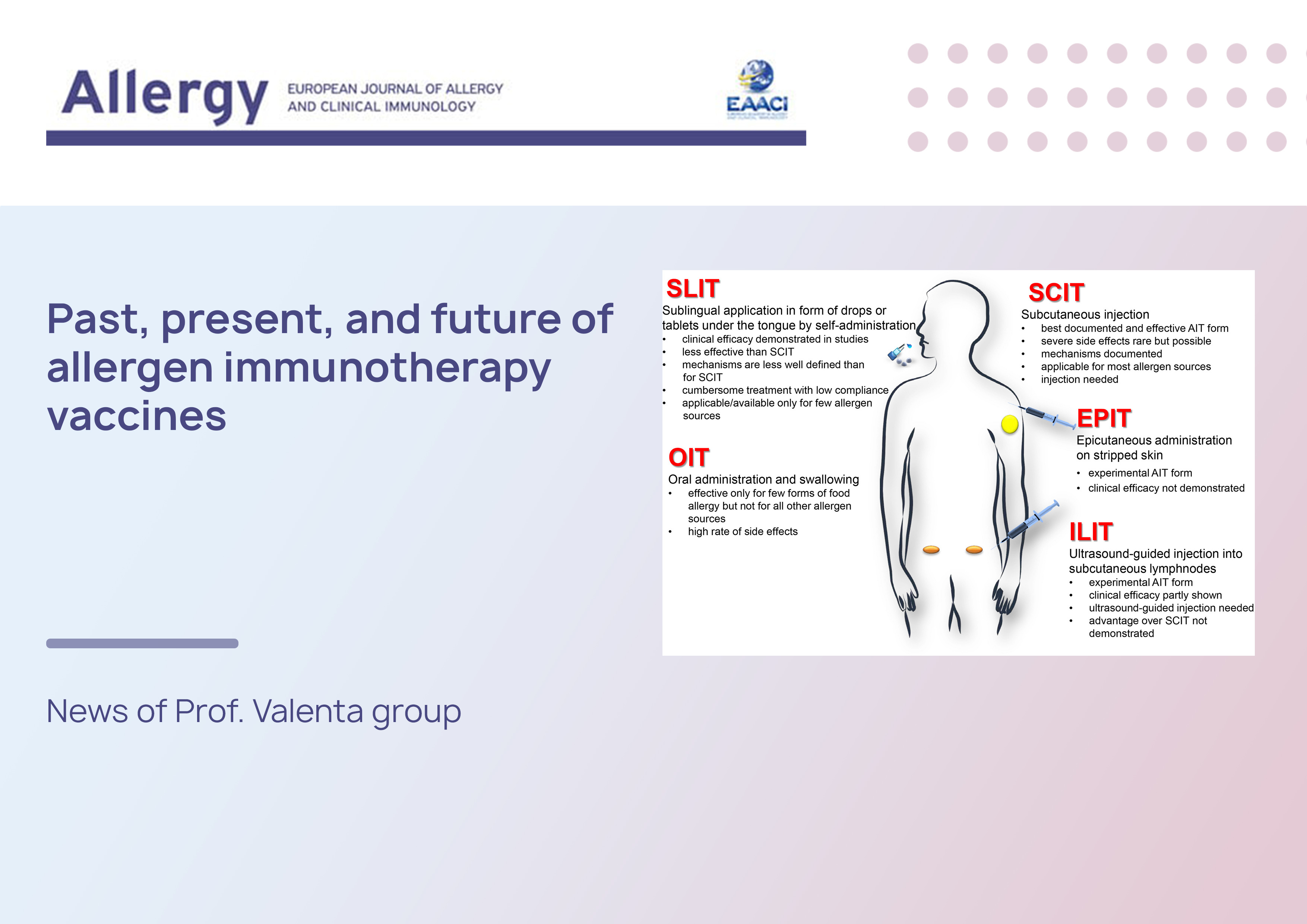Past, present, and future of allergen immunotherapy vaccines
Dorofeeva Y, Shilovskiy I, Tulaeva I, Focke-Tejkl M, Flicker S, Kudlay D, Khaitov M, Karsonova A, Riabova K, Karaulov A, Khanferyan R, Pickl WF, Wekerle T, Valenta R. Allergy. 2021 Jan;76(1):131-149. doi: 10.1111/all.14300. Epub 2020 Apr 29
Abstract
Allergen-specific immunotherapy (AIT) is an allergen-specific form of treatment for patients suffering from immunoglobulin E (IgE)-associated allergy; the most common and important immunologically mediated hypersensitivity disease. AIT is based on the administration of the disease-causing allergen with the goal to induce a protective immunity consisting of allergen-specific blocking IgG antibodies and alterations of the cellular immune response so that the patient can tolerate allergen contact. Major advantages of AIT over all other existing treatments for allergy are that AIT induces a long-lasting protection and prevents the progression of disease to severe manifestations. AIT is cost effective because it uses the patient´s own immune system for protection and potentially can be used as a preventive treatment. However, broad application of AIT is limited by mainly technical issues such as the quality of allergen preparations and the risk of inducing side effects which results in extremely cumbersome treatment schedules reducing patient´s compliance. In this article we review progress in AIT made from its beginning and provide an overview of the state of the art, the needs for further development, and possible technical solutions available through molecular allergology. Finally, we consider visions for AIT development towards prophylactic application.




